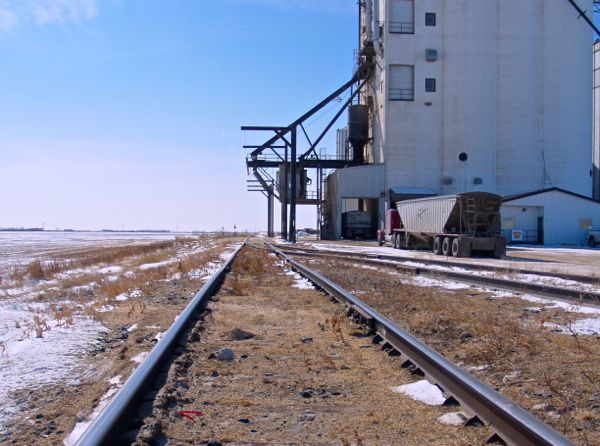The Western Grain Elevator Association (WGEA) wants grain shipments on Canadian National Railway (CN) to resume as soon as possible.
“It has a major impact for every day that we’re not moving grain on CN,” WGEA executive director Wade Sobkowich said in an interview Tuesday.
“A federal mediator has been appointed and that’s a step in the right direction. But we can’t let mediation go on for too long before the next step is taken, whatever that might be.”
More than 3,000 members of Teamsters Canada Rail Conference walked off the job at CN early Tuesday, asking for safer working conditions.
Read Also

Alberta crop conditions improve: report
Varied precipitation and warm temperatures were generally beneficial for crop development across Alberta during the week ended July 8, according to the latest provincial crop report released July 11.
Just the threat of a strike has a negative impact on grain shipping because grain companies may reduce export sales due to the uncertainty, Sobkowich said.
That’s why the WGEA wrote federal Labour Minister Patty Hajdu on Monday “urging the federal government to use any means at its disposal to ensure a labour disruption does not occur, including the introduction of emergency legislation if required.”
About half of Prairie grain elevators are located on CN lines, the letter states. It also notes CN, exclusively, delivers grain to the Port of Vancouver’s north shore and to the Port of Prince Rupert.
“In the event of a work stoppage, these elevators will have no options available to them in the transportation of grain products,” the letter says. “This will further impact our ability to supply our international customers and lengthen the amount of time until producers will be able to deliver to those facilities. Costs from delayed shipments, lost sales, demurrage, etc., will be amplified, and will be carried by all system participants.
“Furthermore, it has the potential of adding to the carryout of grain tonnage at the end of the crop year (July 31). We are extremely sensitive to these extra costs, not only for our members but for grain producers and customers.”
Grain companies rely almost solely on railways to ship grain and therefore shipping grain by rail should be made an essential service, Sobkowich said.
Both railways have been doing a good job moving this year’s crop — a highlight in an otherwise challenging harvest due to excessive rain and snow, which delayed harvesting and reduced grades and the value of the crop, Sobkowich said.
“A work stoppage of any length of time means lost shipping opportunities that will never be recovered,” the WGEA letter says. “Quick action is critical.”
— Allan Dawson is a reporter for the Manitoba Co-operator at Miami, Man. Follow him at @allanreporter on Twitter.
















